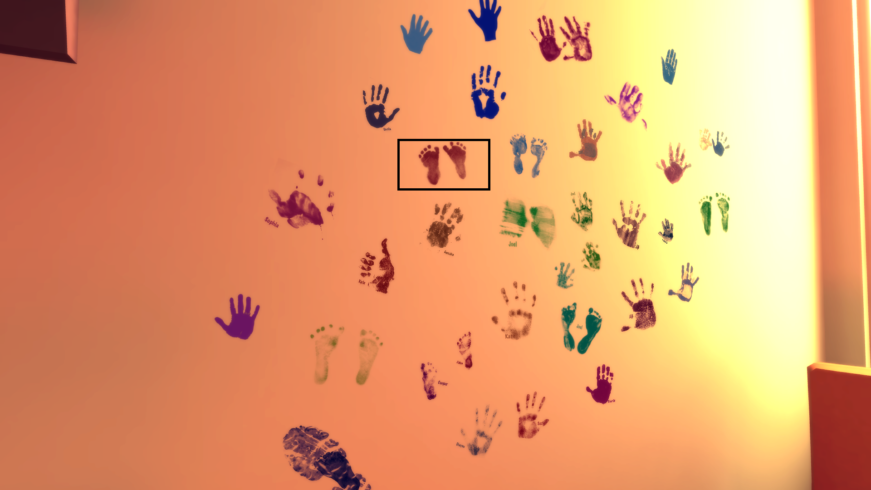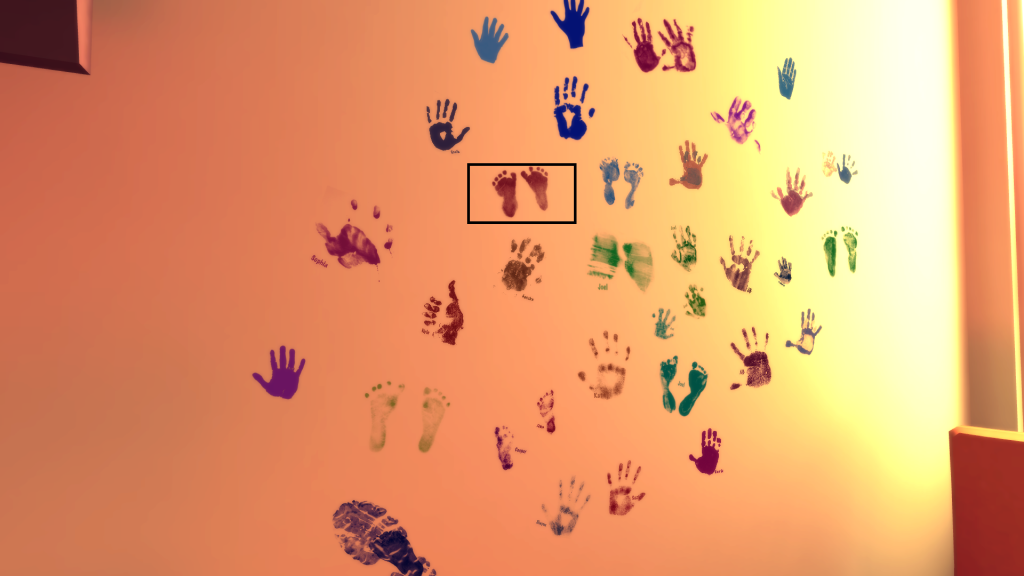Ever since I contributed to the Kickstarter campaign for That Dragon, Cancer, I’ve been excited to play it. Yet on the game’s big release on January 12th, I couldn’t bring myself to turn it on. Heck, I couldn’t even bring myself to install it. Like a politician sensing the breaking of an impending scandal, I delayed the inevitable.
Yes, inevitable. I knew I had to play the game. And I knew I would not make it through with dry eyes. It wouldn’t be just a tear or two, either, like the stifled sobs after sitting through a particularly touching chick flick. I’d be ripping open of old wounds, cutting through layers of poorly healed scars and bringing that pain back to the surface.
Eventually, the game made its way to my computer. I played for a few minutes late at night, though I quickly had to stop. The very first bit of dialog is between the dad, Ryan Green, and his sons about how Joel is different from other kids. How he will develop differently from other people. How he might different for the rest of his life.
I’ve stumbled through enough of those conversations with doctors, teachers, therapists, my daughter. That particular night I didn’t want to listen to another one, even if this time it wasn’t about my son.
Finally, this weekend, I made it through the game, tearing through my insides as I watched That Dragon take another life.
When Oliver died, he had precious few belongings. A blanket touched with a small amount of his blood. A hand knit hat, likely made by someone who had suffered a tragedy of their own. A couple socks.
That was it, the entire collection of material goods that weren’t buried with him.
Along with those few items, we were given a Certificate of Live Birth, a piece of paper acknowledging his existence, that he came to this world, even if only for a moment. That certificate had Oliver’s footprints and hand prints, the only copy we will ever have of them.
During the ongoing crisis of losing Oliver and having Finley barely holding on, my spinning mind continually tried to latch onto something I could do, something that would have meaning. When the nurse handed us the Certificate, blank except for the prints, empty lines for his name and weight and date of birth, I took it upon myself to defend it with fanatical vigor. It had to be kept safe, it had to be kept straight, it had to be filled out without ruining the tiny splotches of ink.
I’m no expert, but I imagine many grieving parents go through some similar crisis. We all look to our children with (at least somewhat unrealistic) expectations of them continuing on the family line. We hope to point to them when we’re old and say, “I helped him or her become who they are, and I’m so proud.” When you lose a child, all that is shattered. There will be no prideful rage when your little Suzie steals the ball and scores a point. There will be no beaming smile to see Billy walk across the stage.
In other words, there’s no worldly acknowledgement that your child ever existed, except maybe a piece of paper, a handful of possessions, and a line or two on an aging government database stashed away in some bureaucrats back office. It’s just another painful reality along with so many others that you have to muddle through.
As parents, we need to see that mark. Even if it’s small.
That’s a long detour to get back to That Dragon, Cancer. Ryan and Amy Green, the parents of Joel and both the creators and central figures in the game, seem to have two aims with their creation. First, they are working their way through an emotional battlefield, using this artistic venture to help them arrive on the other side alive. Second, they have made a beautiful and artistic tribute to their son Joel, who passed away before completion, as a reminder to the world that he is real, that he exists and make a mark on their lives, even if they won’t be spending any more days at the lake with him, throwing bread to the ducks. Even if he will never get an education, have a career, have children of his own who will also want to throw bread to ducks.
In terms of game play, That Dragon, Cancer, takes a very minimal approach. It’s part of the new wave of indie games focusing heavily on art over action. It’s an immersive movie that draws you in to the story, makes you part of the Green family as they try to put one foot in front of the other even when all appears to be lost.
I wish I could do something so memorable for my own son. In my own clumsy attempts, I wrote a story after his death, an adventure with Oliver and Finley, our twin boys who ended up taking different roads, with Oliver taking the low road to Scotland before us all. It’s nothing breathtaking, but it is an acknowledgement of life.
Something else the Greens did by opening up That Dragon, Cancer on Kickstarter is they allowed hundreds of others to be part of the story, to make Joel’s journey not just about him, but about all the sons and daughters who died prematurely. They bring everyone in during one scene with Amy Green cradling Joel while softly humming How Great Thou Art. As you move around the hospital, that hymn quietly repeating in the background, you see hand prints on the wall and cards of support for those who have died. The scene is like having arms come out of the screen and embracing the player, reminding them that the game isn’t just about the Greens, it’s about the untold millions more who have similarly struggled. That even if there is no game celebrating their life, they still existed, they still matter.
If you do play the game, you might even see Oliver’s tiny mark on the world, lifted from the Certificate of Life I’d defended so faithfully six years ago.
Also refreshing is the game’s inclusion of religion. The Greens are clearly Christian, and they do not shy away from it. It doesn’t come across as preachy, if that’s a concern (though I am religious myself and likely much less sensitive to preachy than a non-religious person would be). This is death. Even those only tangibly religious will often dive into their beliefs in the face of tragedy, whether or appeal to God or to blame Him. Since their believe in Christ is clearly fundamental to who they are, telling the story of Joel without including their faith would be like making a peach cobbler without any peaches. Taking out those religious overtones in their emotional battle would be to twist the story until it was no longer theirs.
That Dragon, Cancer, is beautiful, both visually and emotionally. It’s unique, and cuts deep. For those who are not familiar with loss, I imagine it is stirring. For me, it was a reminder not only of my son, but that there are others out there who understand. That grief is grief, and none of us need to suffer alone.

